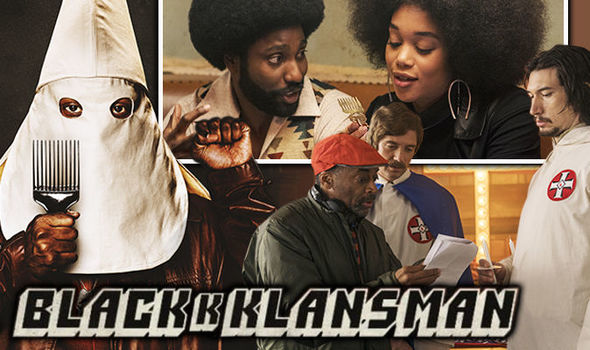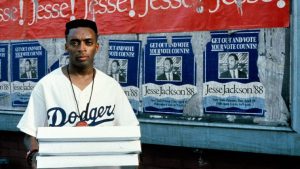
Spike Lee in Do The Right Thing (1989)
I have been given only a few film going experiences in my life to equal the first time I saw “Do the Right Thing.” Most movies remain up there on the screen. Only a few penetrate your soul. In May of 1989 I walked out of the screening at the Cannes Film Festival with tears in my eyes.
-Roger Ebert wrote in a 2001 essay about Spike Lee’s 1989 film “Do The Right Thing.” The racial based film in the late 20th century remained one of the most powerful and non-bias films to this day. Twenty nine years later at the Cannes Film Festival, Blackkklansman premiered and was given a ten minute ovation from the audience. Missing the award in 1989, this time around Lee snagged the festival’s second place prize. While Blackkklansman was undoubtedly more enticing than “Do The Right Thing”, it wasn’t nearly as powerful. Yet it most definitely brought me back to the former more radical version of Spike Lee.
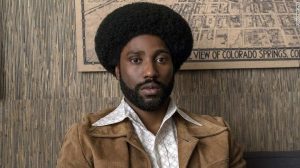
John David Washington
This buddy cop genre film is set in the 70s about rookie detective Ron Stallworth (John David Washington) who’s the only black cop in Colorado Springs that decides to infiltrate the local Ku Klux Klan by phone, pretending to be a white man. Stallworth teams up with a Jewish detective in the force named Flip Zimmerman (Adam Driver) who poses as the racist Stallworth for face to face meetings.
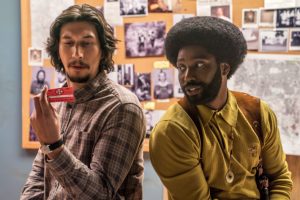
Adam Driver and John David Washington
Zimmerman shows as the movies most compelling character. He goes through an inner struggle never accepting his own culture or as stating in the movie, he’s never had to. He is a cop who ignores the racism of is fellow colleagues to keep a family bond within the force. His views start changing and internal conflict shows in one of the movies, greatest scenes when he tells Stallworth “”I’m Jewish, yes, but I wasn’t raised to be . . . I was just another white kid. And now I’m in some basement denying it out loud. I never thought much about it, now I’m thinking about it all the time.”
Though Stallworth’s character had many chances to develop more three deminsonal than he does, Lee falls flat to do so with him. A man who believes he can help his people as a cop, hates being called a pig, bound by his duty and a Blaxploitation fan should brother, there are many inner conflicts that could have been developed more.
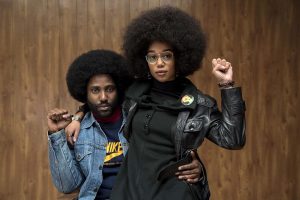
John David Washington and Laura Harrier
Lee’s romantic aspect of the film falls a little short also. Stallworth is romantically drawn to the president of the local college’s Black Student Union, Patrice Dumas(Laura Harrier). Dumas, a civil rights activist believes that its immoral and impossible to change a system from the inside, like what Stallworth is trying to do. She instead, feels as though you should fight as an outsider and cannot deal with the fact that Stallworth is a police officer even after saving her life.
“Truth is, I always wanted to be a cop,” Stallworth says. “And I’m still for the liberation of my people.” Dumas responds with, “My conscience won’t let me sleep with the enemy.” This and a couple more conversations were the only parts of the movie that acknowledges this tension. It never gets expanded more throughout the movie to develop the characters.
What does gets teased out the most throughout the movie is it’ message. Spike Lee, never being one for modesty, unapologetically hits his audience with the explanation of race in the 21st century as much as he can. There’s even full scenes of dialogue in the movie referencing President Trump by speaking about David Duke getting out of his Klan robe and into a suit, getting involved in the political policy until there is someone in the White House who reflects Duke’s view (i.e Trump).

Heather Heyer mural
Lee’s Messaging hits hard and works great. He powerfully shows footage of various protests including last year’s “Unite the Right” rally in Charlottesville. He shows us the white supremacist plowing his car into a crowd of counter-protesters from many angles and end that movie with a photo of Heather Heyer, the white woman who dies in that attack. The end of the film is very sobering and heart wrenching and plays on your mind about how much has really changed over the years.


